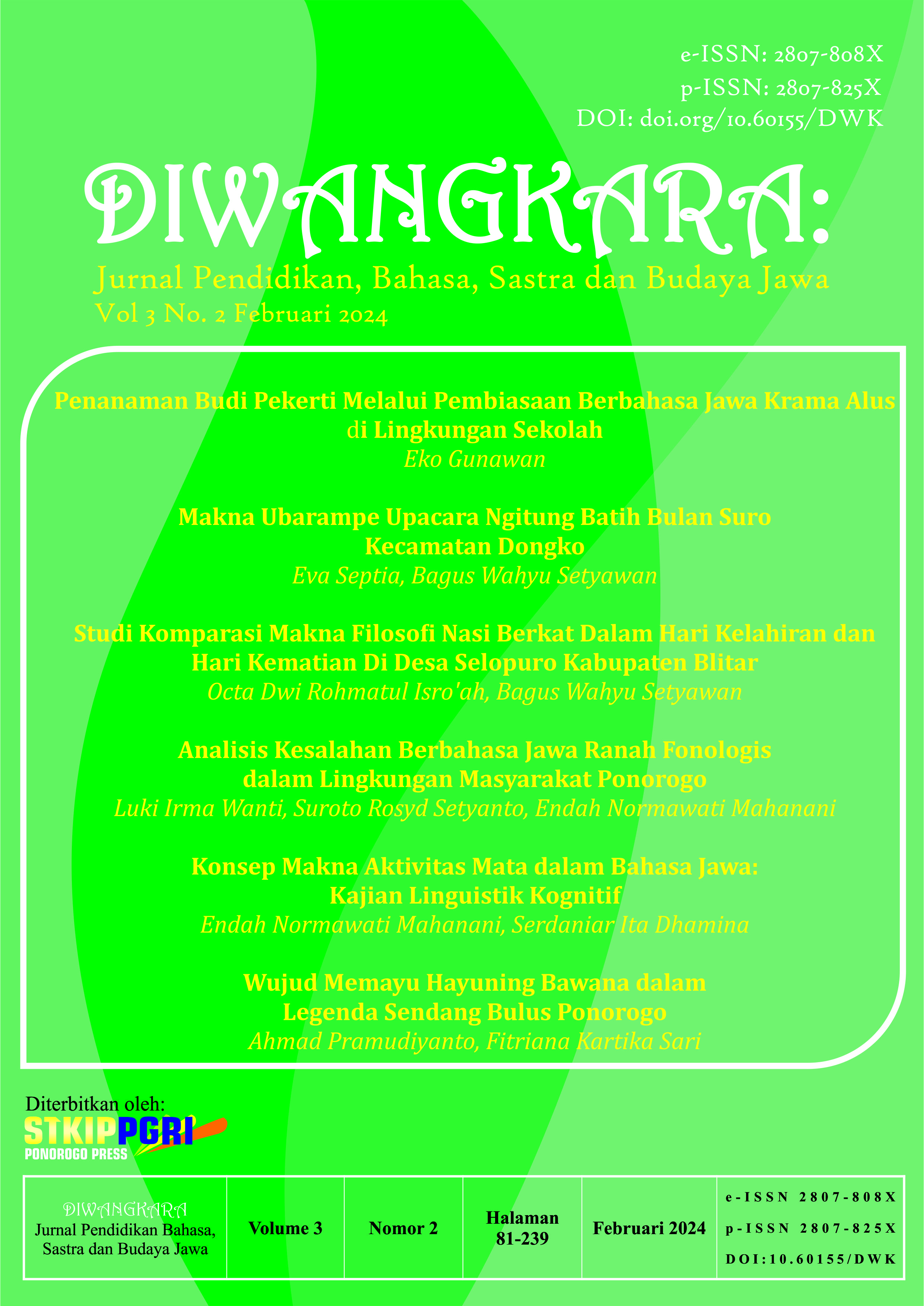Penanaman Budi Pekerti Melalui Pembiasaan Berbahasa Jawa Krama Alus di Lingkungan Sekolah
DOI:
https://doi.org/10.60155/dwk.v3i2.378Keywords:
Good Manner, Javanese Language, Krama Alus, Habituation in the School Environment.Abstract
The aim of education is not just to create pupils, pupils or learners who have intelligence and life skills, but also have good morals, character and manners. It will be a special note for students who have a high level of intelligence, but are not able to interact well with the people around them. Therefore, it is necessary to instill good manners in the school environment, especially in the aspect of morals towards others, one of which is through getting used to speaking good Javanese language manners.
The language of krama alus is structurally composed of the vocabulary of krama and krama inggil/krama andhap. The krama inggil is used by the speaker (02) and the person being discussed (03) as a form of respect due to differences in position, age, or because they are not yet familiar. The vocabulary of krama andhap is used by speakers (01) as an effort to respect other people by humbling themselves through certain word choices.
Strategies that can be applied in getting used to speaking krama alus in the school environment are the application of the drill method (repetition of practice), holding regular Javanese language events (krama alus), as well as the application of the 3M principles (starting from yourself, starting from small things, and starting from now ). A number of factors determine the success of the alus language habituation program in the school environment, including teacher commitment and example, correct understanding of Javanese, availability of learning resources, and intensity of implementation.











